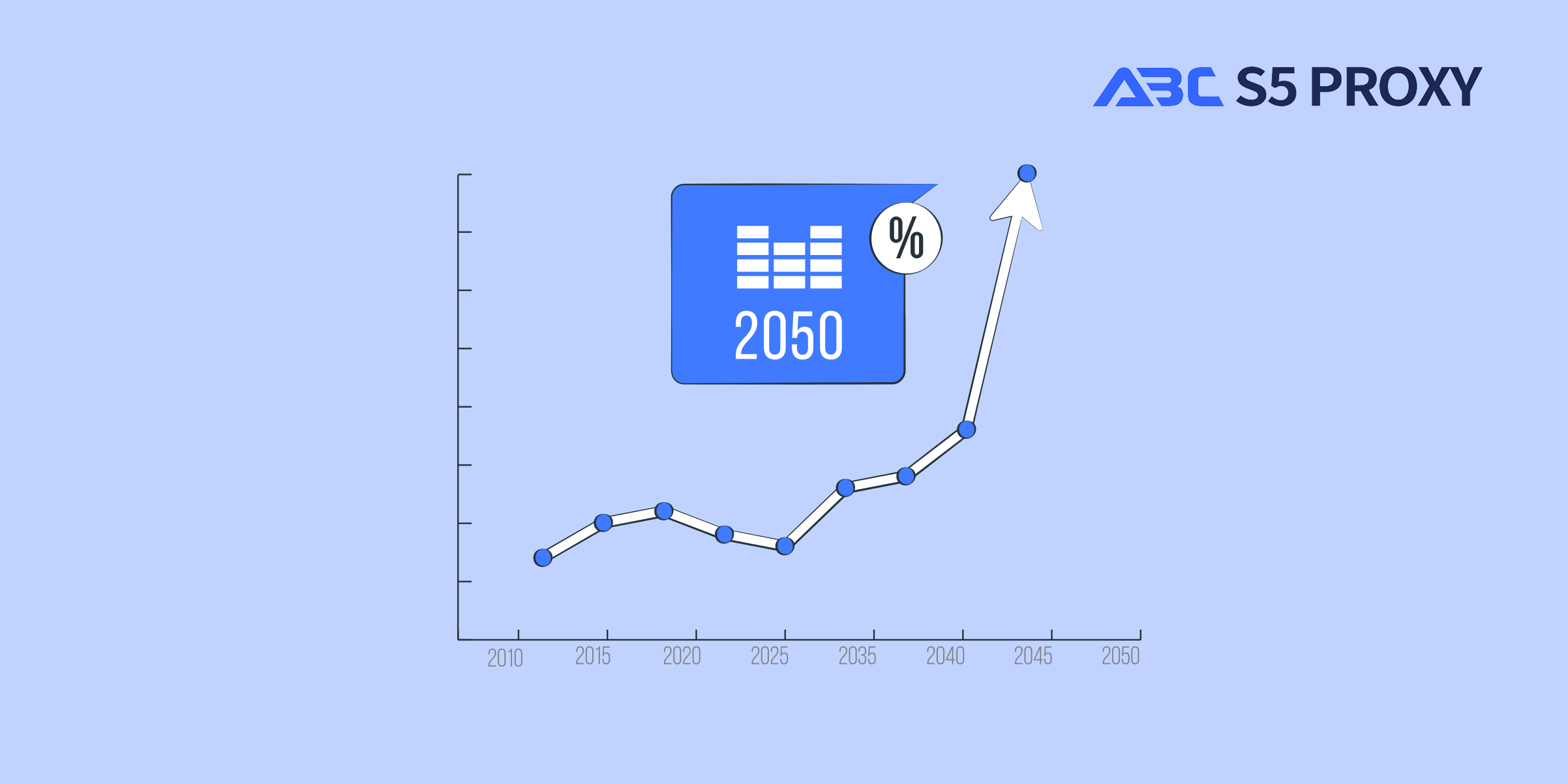Residential Proxies
Allowlisted 200M+ IPs from real ISP. Managed/obtained proxies via dashboard.

Proxies
Residential Proxies
Allowlisted 200M+ IPs from real ISP. Managed/obtained proxies via dashboard.
Residential (Socks5) Proxies
Over 200 million real IPs in 190+ locations,
Unlimited Residential Proxies
Use stable, fast, and furious 700K+ datacenter IPs worldwide.
Static Residential proxies
Long-lasting dedicated proxy, non-rotating residential proxy
Dedicated Datacenter Proxies
Use stable, fast, and furious 700K+ datacenter IPs worldwide.

Web Unblocker
View content as a real user with the help of ABC proxy's dynamic fingerprinting technology.
Proxies
API
Proxy list is generated through an API link and applied to compatible programs after whitelist IP authorization
User+Pass Auth
Create credential freely and use rotating proxies on any device or software without allowlisting IP
Proxy Manager
Manage all proxies using APM interface

Proxies
Residential Proxies
Allowlisted 200M+ IPs from real ISP. Managed/obtained proxies via dashboard.
Starts from
$0.77/ GB
Residential (Socks5) Proxies
Over 200 million real IPs in 190+ locations,
Starts from
$0.045/ IP
Unlimited Residential Proxies
Use stable, fast, and furious 700K+ datacenter IPs worldwide.
Starts from
$79/ Day
Rotating ISP Proxies
ABCProxy's Rotating ISP Proxies guarantee long session time.
Starts from
$0.77/ GB
Static Residential proxies
Long-lasting dedicated proxy, non-rotating residential proxy
Starts from
$5/MONTH
Dedicated Datacenter Proxies
Use stable, fast, and furious 700K+ datacenter IPs worldwide.
Starts from
$4.5/MONTH
Knowledge Base
English
繁體中文
Русский
Indonesia
Português
Español
بالعربية

In today's digital age, E-commerce Arbitrage has emerged as a popular method for individuals to make money online. However, the success of E-commerce Arbitrage relies heavily on the use of proxies to avoid detection and access restricted websites. In this blog post, we will delve into the world of E-commerce Arbitrage and proxies, exploring how they work together to create profitable opportunities for savvy online entrepreneurs.
E-commerce Arbitrage is the practice of buying products from one online platform at a low price and selling them on another platform for a higher price, thus making a profit. This concept relies on taking advantage of price discrepancies between different online marketplaces. By leveraging tools such as price tracking software and data analysis, E-commerce Arbitrage practitioners can identify lucrative opportunities to buy low and sell high.
Proxies play a crucial role in E-commerce Arbitrage by masking the user's IP address and location, allowing them to access websites and gather data without being detected. In the world of online retail, many platforms have restrictions on the number of requests a user can make or the regions they can operate in. Proxies help circumvent these limitations by providing a different IP address that appears as if the user is accessing the website from a different location.
There are several types of proxies commonly used in E-commerce Arbitrage, each with its own unique advantages and limitations.
1. **Residential Proxies**: Residential proxies are IP addresses provided by Internet Service Providers (ISPs) to homeowners. They are highly trusted by websites but can be expensive to acquire.
2. **Datacenter Proxies**: Datacenter proxies are IP addresses provided by a secondary source, not tied to a physical location. They are cost-effective but may be more easily detected by websites.
3. **Rotating Proxies**: Rotating proxies automatically switch between different IP addresses, reducing the risk of being blocked by websites.
When using proxies for E-commerce Arbitrage, it is essential to follow best practices to maximize your success and avoid detection.
1. **Rotate IP Addresses**: To prevent websites from flagging your activity, regularly rotate your IP addresses to simulate natural browsing behavior.
2. **Monitor Performance**: Keep track of proxy performance metrics such as speed, uptime, and location coverage to ensure smooth operation.
3. **Stay Compliant**: Respect the terms of service of the online platforms you are operating on to avoid being banned or restricted.
In conclusion, E-commerce Arbitrage presents a lucrative opportunity for individuals to generate income online by leveraging price differentials across various platforms. Proxies play a vital role in this process by enabling users to access websites anonymously and gather data without detection. By understanding the types of proxies available and following best practices for their use, E-commerce Arbitrage practitioners can enhance their success and take advantage of profitable opportunities in the online marketplace.
Featured Posts
Popular Products
Residential Proxies
Allowlisted 200M+ IPs from real ISP. Managed/obtained proxies via dashboard.
Residential (Socks5) Proxies
Over 200 million real IPs in 190+ locations,
Unlimited Residential Proxies
Use stable, fast, and furious 700K+ datacenter IPs worldwide.
Rotating ISP Proxies
ABCProxy's Rotating ISP Proxies guarantee long session time.
Residential (Socks5) Proxies
Long-lasting dedicated proxy, non-rotating residential proxy
Dedicated Datacenter Proxies
Use stable, fast, and furious 700K+ datacenter IPs worldwide.
Web Unblocker
View content as a real user with the help of ABC proxy's dynamic fingerprinting technology.
Related articles

How does the ChatGPT RAG example improve information processing capabilities
Analyze the actual application scenarios of ChatGPT combined with Retrieval Augmented Generation (RAG) technology, explore its value in knowledge integration and data acquisition, and understand how abcproxy provides underlying support for the RAG system.

How does Best Socks5 Proxy ensure anonymous network needs
This article explores the core value of Socks5 proxy in anonymous networks and analyzes how abcproxy high anonymous proxy meets diverse security needs.

How to remove website access restrictions
This article analyzes the technical principles and mainstream solutions of website access restrictions, and explores the core role of proxy IP in bypassing regional blocking and anti-crawling mechanisms. abcproxy provides multiple types of proxy IP services to help you break through network restrictions efficiently.